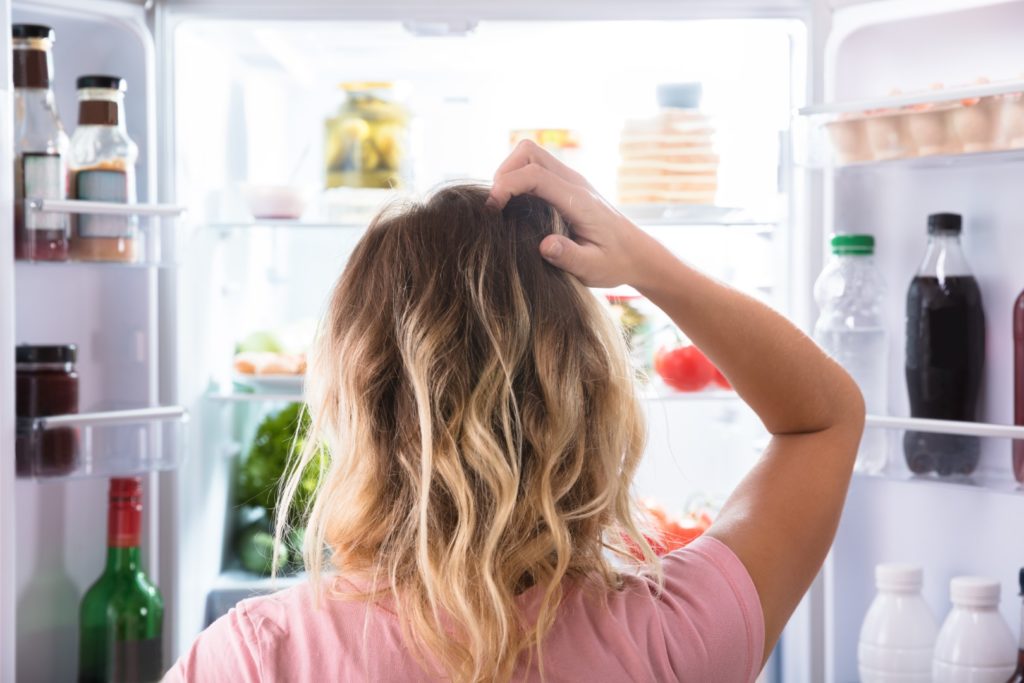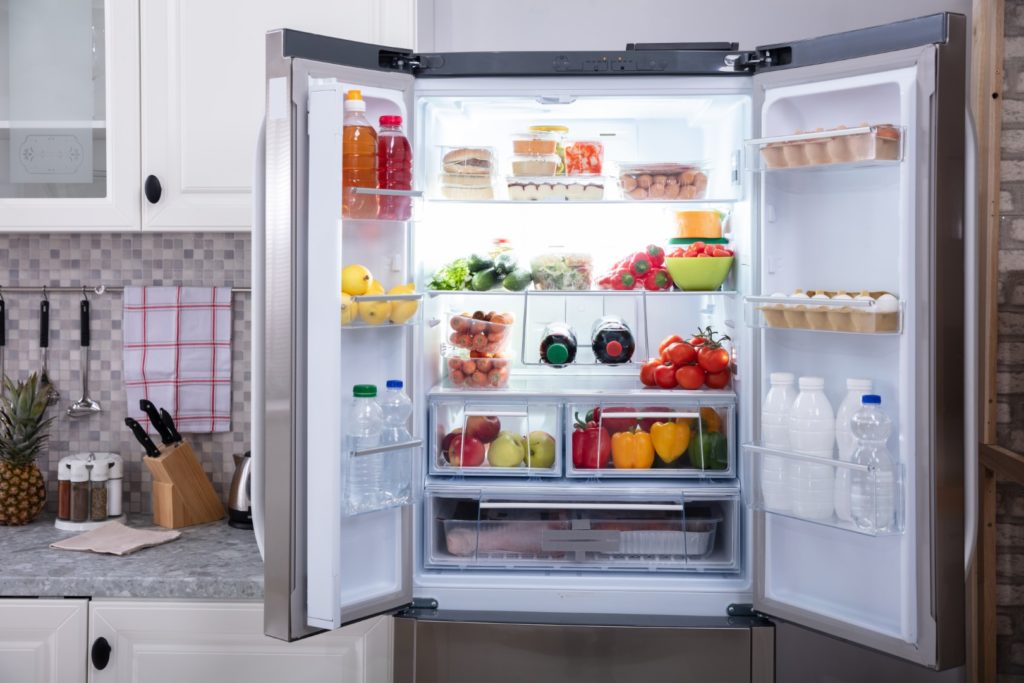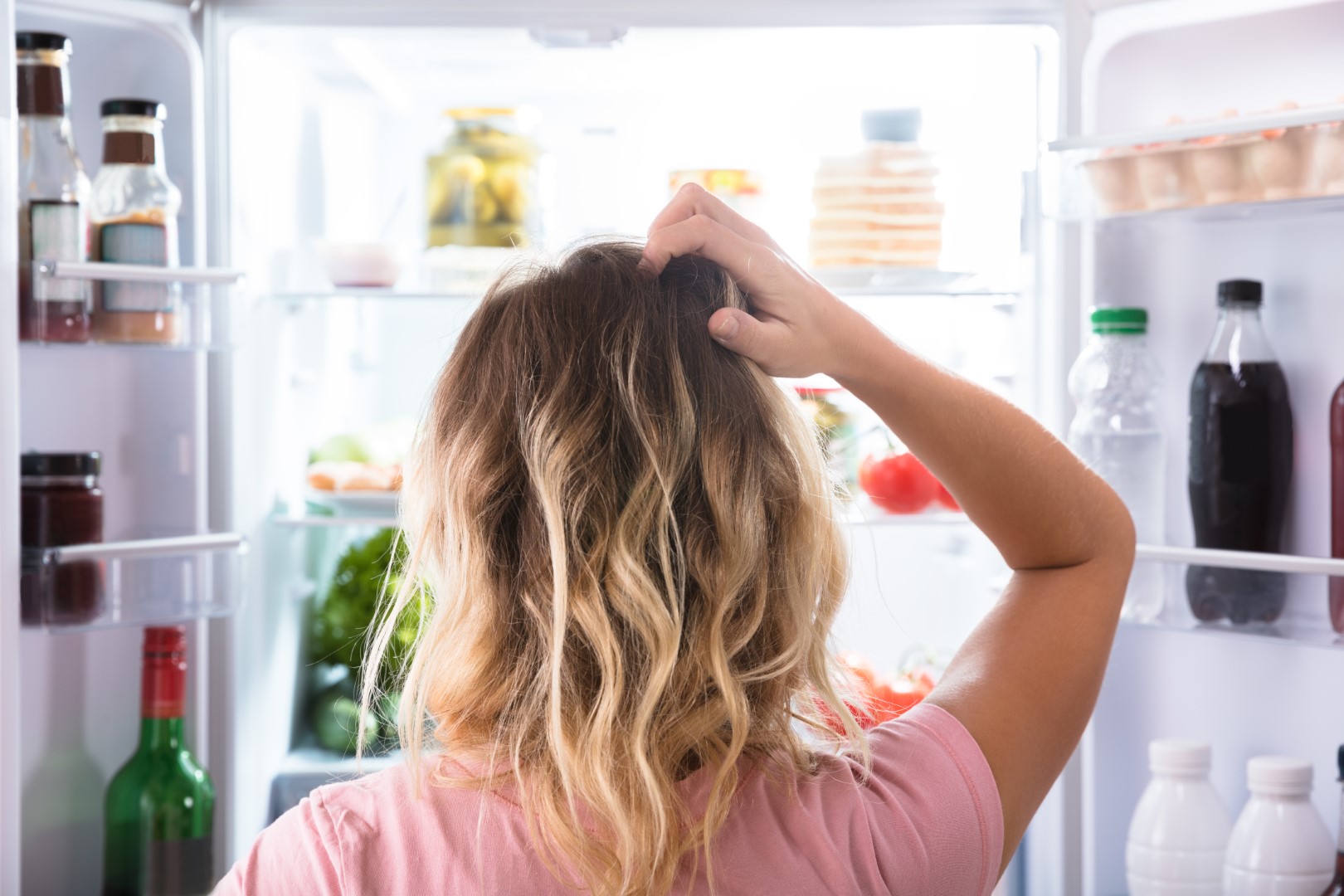
When your fridge gets too cold, it’s not just an inconvenience. Iceberg lettuce with icicles, milk slushies, and carrots that are way too crispy, extreme temperatures and temperature swings can wreak havoc with your food increasing your spoilage and costing you money.
So what should you do if your refrigerator is over-cooling and ruining your meal plan?
Well, I’m glad you asked…
1) Check Your Fridge Temperature
The first thing you need to do is check the temperature of your fridge. Health Canada recommends that you set your refrigerator temperature below 4 degrees Celsius (40 Fahrenheit), while most manufacturers agree that the ideal temperature is anywhere between 3 – 5 degrees Celsius (37 – 41 degrees Fahrenheit). If your refrigerator does not display a numeric temperature, then it’s probably a good idea to invest in a small appliance thermometer so you can manually check and correct the cooling levels as necessary.
2) Review Where Your Store Your Food
This may come as a surprise, but some parts of your refrigerator are colder than others. As a general rule, when the middle shelf is at 5 degrees Celsius, the bottom shelf is closer to 2 degrees. Most refrigerators take advantage of the temperature range by creating storage areas for more sensitive foods in the colder areas i.e. produce drawers.
That said, if you’re placing food randomly in your fridge, then you may be setting yourself up for trouble. Try to store your produce in the best storage areas for them; meat and fish should be stored on the lower shelves, dairy and deli products in the middle, while precooked and ready to eat items can go up top.
Keep in mind, the rear of the fridge is closest to the cooling element, so it’ll be cooler towards the back of the shelves than the front. And just as a general rule don’t store sensitive items on the door. Refrigerator doors are subject to more temperature fluctuation than the interior, and food can spoil quickly in the wrong circumstances.

3) Make Sure Your Refrigerator Is Filled Up
Your fridge is designed to operate best under ideal conditions. That means keeping it well stocked so that air flows properly within the refrigerator cavity. Understocked and you’ll waste energy maintaining temperatures and risk more extreme temperature swings when you add product. Overstocked and you can block airflow, creating warm and cold pockets that can damage your food. Keep it organize and relatively full and you’ll be good.
4) Ask for Help
If you can’t keep your refrigerator from freezing your food no matter what you do then it’s probably not a usage problem, it’s a service problem. Contact a reputable appliance repair person to inspect your machine and ensure it is operating correctly. Sometimes a simple fix can solve the issue.
If the problem recurs, then it’s probably time to buy a new fridge. Browse our selection of refrigerators online or visit our store where one of our appliance experts will be happy to help you pick the best refrigerator for you.
Amanda, Your Appliance Expert

